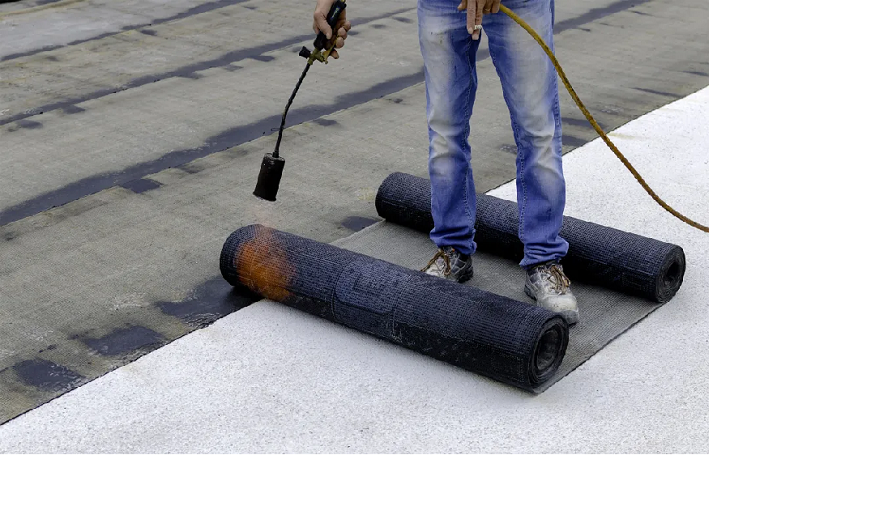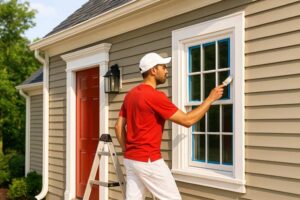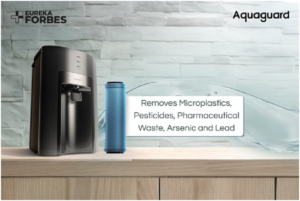Indoor air quality is a significant concern for households and businesses, particularly those in highly polluted cities. While many are aware of the role of ventilation, HVAC systems, and air purifiers in maintaining indoor air quality, the impact of waterproofing is often overlooked. Water ingress through walls, ceilings, or floors creates an ideal environment for mould, mildew, and other pollutants, which can lead to respiratory issues. In this context, a professional waterproofing contractor in Delhi plays a crucial role in preserving the air quality, comfort, and health of indoor spaces in both homes and businesses. These experts use their knowledge and experience to identify and effectively seal potential water entry points, preventing the growth of harmful pollutants and ensuring a healthier indoor environment.
The connection is clear: water fosters mould and mildew, which release spores and other by-products, contaminating the air. These contaminants can lead to a range of health issues, from respiratory problems to allergies, and even severe reactions for those who are particularly sensitive, such as asthmatics. For instance, severe reactions could include asthma attacks, difficulty breathing, or even hospitalization. Moisture also nourishes dust mites and other allergens that thrive in damp conditions, adding to the list of airborne dangers. Therefore, maintaining a dry indoor environment is not just about preserving walls and furniture but also safeguarding the air people breathe every day.
This precautionary measure offers a barrier to avoid the entry of water through specific weak points that may exist in the structure of the building. Thus, any building owner can save themselves from such damage to health and maintenance costs by investing in an effective waterproofing solution to keep their property safe and comfortable. Waterproofing becomes all the more vital when the weather conditions are extreme, as it is during the monsoon. Urban dwellers know that they usually have problems stemming from humidity and air pollution, which contribute to a formidable barrier to cleanliness in the indoor air.
Waterproofing cuts down moisture content that might seep into very porous materials used in building construction, such as concrete or untreated wood. Water infiltration into these materials results in structural damage and leads to a medium supporting microorganisms’ proliferation. Microorganisms inhabiting moist conditions emit VOCs and other pollutants, further contributing to degradation in indoor air quality. Furthermore, in the process of decomposition of materials, as induced by moisture, additional pollutants are emitted as those substances degrade. Waterproofing addresses these issues by keeping the building envelope sealed, avoiding exposure to unnecessary microbial and structural degradation.
It could also be done during the construction phase or routine maintenance to have a long-term effect on IAQ. Good-quality waterproofing solutions tightly seal structural elements to ensure they are resistant barriers against infiltrations for years to come. Expert waterproofing contractor services in Noida ensure that residential or commercial buildings will stay guarded against any possible breaches, helping to create healthy indoor environments that are conducive to long-term well-being.
The health impact of good waterproofing is significant. Lower indoor humidity can do much to reduce asthma symptoms, allergies, and a score of other respiratory problems. For instance, mould and mildew are among the causes of allergic reactions and thrive in humid environments. Their spores can cause anything from slight eye irritability to full-blown asthma attacks. By minimizing mould growth, waterproofing can help make indoor spaces much safer for the occupants. This is especially great for families, children, and older people, who tend to be more sensitive to environmental triggers.
Low humidity also inhibits insects such as cockroaches, notoriously noxious respiratory insects. The allergens of cockroaches can trigger asthma and allergies, particularly in children. Keeping a building dry helps avoid that problem, which keeps the indoor environment cleaner and much safer health-wise.
Besides the health benefits, waterproofing can save property owners considerable amounts of money. Dampness and mould will ruin the property; repair costs will be very high. For instance, water damage to walls, floors, and even furniture usually requires a great deal of maintenance; sometimes, it needs total replacement because not all types of materials can be exposed to too much moisture for too long. Regular waterproofing reduces these risks, saving on future renovation costs. Besides, effective waterproofing means costs for treating mould-related ailments are contained; thus, the initial investment in waterproofing is worth it as a preventive measure in the end, leading to significant long-term cost savings.
A business owner needs to maintain IAQ at the optimum level, considering that some areas frequently encounter huge variations in humidity levels. Poor air quality has been related to cognitive impairment and fatigue, which will minimize workplace efficiency. Thus, waterproofing solutions are recommitted to reduce such risks and ensure cleanliness with a healthy workplace that will go a long way to help employees be more satisfied and productive.
Even though waterproofing is an essential base in the management of IAQ, it is even multiplied when combined with other IAQ-enhancing strategies. For example, adequately ventilated structures have less buildup of pollutants, and air purifiers may help filter out airborne particles. These systems, however, might have to work harder to offset the effects of moisture-driven pollutants where waterproofing is absent. Thus, waterproofing provides a base on which other IAQ measures operate more effectively.




